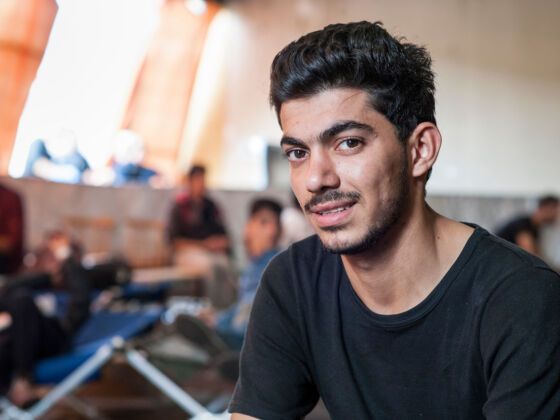THIS PAST WEEKEND, ISIS confirmed the death of American aid worker Kayla Mueller. Mueller had been taken captive by the Islamic State in 2013, and was purportedly killed while in captivity in a targeted bombing by the Jordanian government. We say “purportedly” because ISIS is the worst, and everything they say should be taken with a grain of salt. A grain of mean, dumb, dickish salt. Jordan and the United States have both claimed that Mueller’s death was more likely part of a media stunt by ISIS.


Has ISIS Made Being an International Aid Worker Too Dangerous to Be Worth It?
But the end result is the same: Mueller, a 26-year-old, idealistic American aid worker, is dead. This comes on the heels of news that ISIS is now urging their supporters to attack or capture foreign teachers, or even to conduct “lone wolf” attacks against international schools in the Middle East, believing them to be easy targets.
The nastiness of ISIS’s killings and the relative defenselessness of foreign aid workers begs the question: should aid workers be going there at all? Is being an international aid worker worth it anymore?
The answer, I think, depends on what you consider “worth it” to mean. Mueller worked with a number of aid organizations, from Doctors Without Borders to Amnesty International to HIV/AIDS clinics. She specifically went to Syria to help refugees in the midst of the conflict. She was a “deeply idealistic” woman according to her friends, and her record shows that she was anything but the generational stereotype of a millennial slacktivist: she followed through on her idealism.
The question, then, is whether things like public health and education and human rights and peace are “worth it,” even in the face of violence, brutality, and despair. The question is whether the people of Iraq and Syria deserve access to things like medicine and freedom and knowledge, even though they live in one of the most dangerous areas of the earth. The question is whether we want to categorize our ideals as hobbies rather than as fundamental beliefs that are worth dying for.
There’s always the danger, when someone like Mueller dies, of turning them into a martyr for the cause. ISIS likes martyrs: we shouldn’t. We would much prefer a Kayla Mueller that lived for another 70 years and continued to help those in need, because frankly, the world can use all the Kayla Mueller’s it can get. It has enough martyrs.
However, Martin Luther King, Jr. (another person we would have preferred not to be a martyr), once said, “There are some things so dear, some things so precious, some things so eternally true that they’re worth dying for. And if a man has not discovered something that he will die for, he isn’t fit to live.”
Mueller went to a war zone specifically because it was a war zone, so we can assume she knew she was putting her life into some danger. And regardless of whether she considered her ideals to be something worth dying for, we know that she eventually died for them anyway. The world could use more people who are willing to die for their ideals, and fewer people who are willing to kill for their ideals instead.
Does this mean that idealists should all put themselves in harm’s way to prove how hardcore they are? Absolutely not. Does this mean they shouldn’t take measures to stay safe and protect themselves? Absolutely not.
But life is full of risk, and everyone dies. Most people die arbitrarily, of disease or from an accident or from a heart attack. So it should be considered something of a privilege — a sad, insufficient privilege in the face of senseless death, but a privilege nonetheless — to die for a cause worth dying for.
People like Mueller are building a safer, kinder, more humane world. And while it’s a tragedy to lose them, what we should take from their stories is inspiration, not fear.